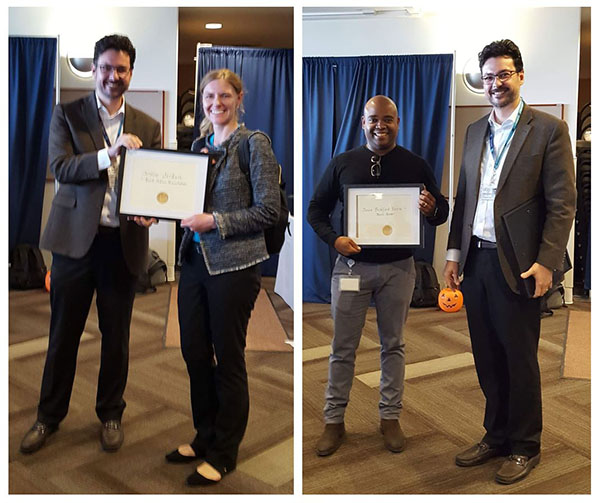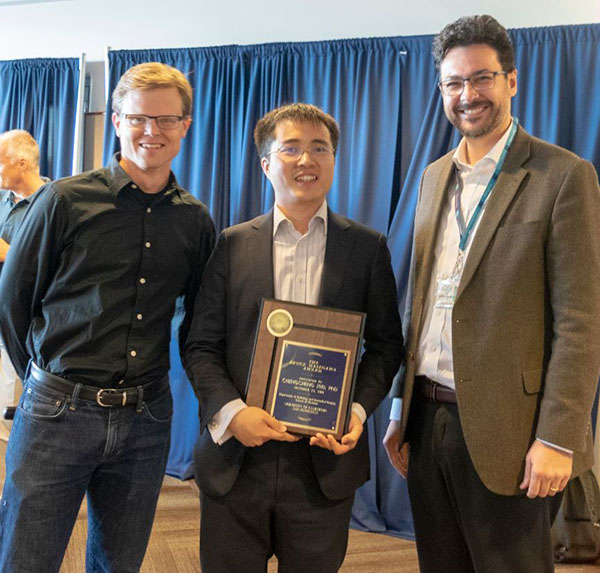UCSF Radiology Imaging Research Symposium and Awards Highlight Department’s Research Accomplishments
The UC San Francisco Department of Radiology and Biomedical Imaging’s 15th Annual Research Symposium showcased the department’s current and ongoing research. Oral presentations were given by 16 speakers on topics including deep learning methods, artificial intelligence in radiology, hyperpolarized C-13 and H-1 metabolic imaging, imaging bone-cartilage interactions, MR-guided focused ultrasound, neural correlates of smartphone dependence in adolescents, dual-energy CT and many more. A large audience of more than 200 people attended the symposium which took place on October 23, 2018.
Following the presentations, the audience attended a comprehensive session featuring 55 scientific posters showing the breadth, depth and strength of the department’s research. A ceremony following the poster session awarded Caroline Jordan, PhD with Best Podium Presentation for her talk on “Aerosol Jet-Deposited Double Helix Wireless Resonant Markers for MRI Catheter Tracking” and Denis Beckford Vera, PhD with Best Poster for his scientific poster explaining “Immuno-PET imaging of Human Tumor Necrosis Factor Alpha in a Transgenic Mouse Model of Rheumatoid Arthritis.”

Each year, a major highlight of the Symposium is the Hasegawa Award, presented at the conclusion of the symposium. Chengcheng Zhu, PhD, an assistant professional researcher in the Cardiovascular Imaging Research group was the 2018 Hasegawa Awardee. Dr. Zhu obtained his MPhil and PhD in Radiology from the University of Cambridge (UK) in 2010 and 2013 before coming to UCSF as a postdoctoral researcher.

“Chengcheng Zhu's work has helped to perform faster, higher-resolution cardiovascular MRI using techniques such as compressed sensing, and he has worked with physicians to apply these techniques in patient populations,” noted Peder Larson, PhD, an associate professor and research leader in the department, who presented the award to Zhu. “He also is a Junior Fellow of the International Society for Magnetic Resonance in Medicine (ISMRM) and has a prestigious NIH K99/R00 ‘Pathway to Independence’ award to facilitate his transition to a faculty position.”
The Hasegawa Award honors the memory of Bruce Hasegawa, PhD (1954-2008) a distinguished scientist, teacher and mentor whose UCSF research career focused on medical physics and bioengineering. His research was highlighted by his pioneering work combining SPECT functional imaging with CT anatomical imaging to produce the first combined dual-modality imaging system, SPECT/CT.
